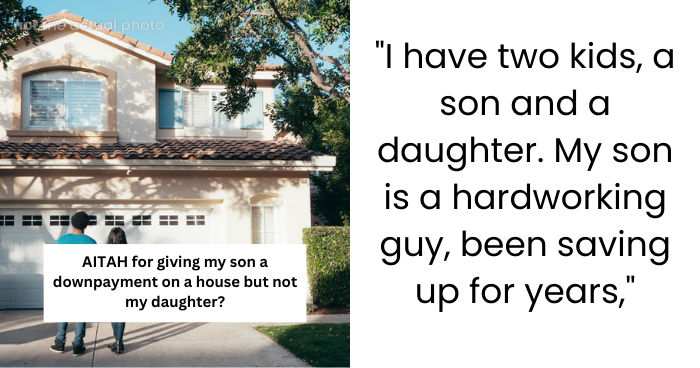Financially Stable Daughter Upset Over Parents Supporting Struggling Brother
In this family drama, a father is being accused of playing favorites by giving his son financial assistance for a house deposit while refusing the same assistance to his daughter. His son — a hardworking young man with a well-paying job — needed the money to pay the deficit needed to secure his first home given the competitive housing market. The daughter, however, is married to a rich man, with the luxuries of a big house and money. The daughter who was angry with her parents said that her parents are biased to favour her brother even though they are in a good situation which is why they feel free to shout at her.
That backstory is part of the problem. The couple had previously poured a fortune into their daughter to cover the tumultuous years of her youth, which included educational difficulties and a rehab stop. By contrast, the son has barely received any financial assistance to date. The father defends his choice by citing the imbalance in situation that his children are in but the allegations from the daughter have created a rift in the family.
Many young people hope to become homeowners. However, in today’s market, that dream seems distant

A dad decided to help his son out with the down payment for his home. However, the man’s daughter thought he was playing favorites
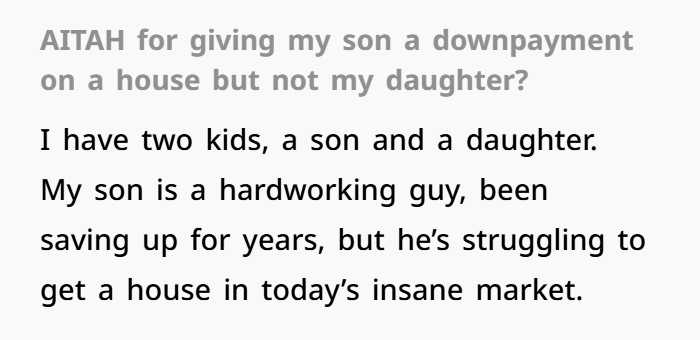

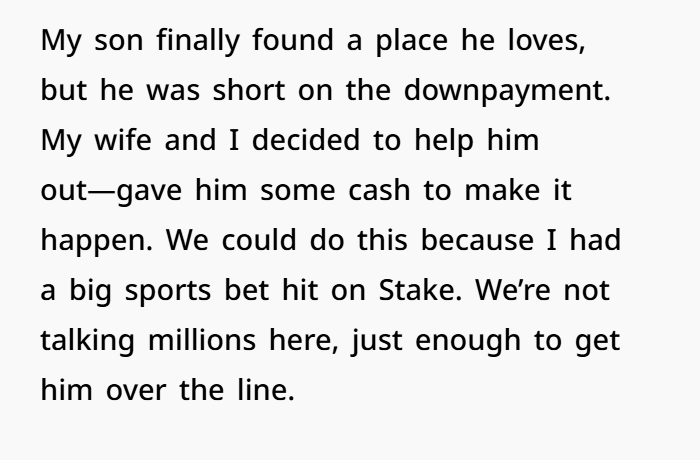
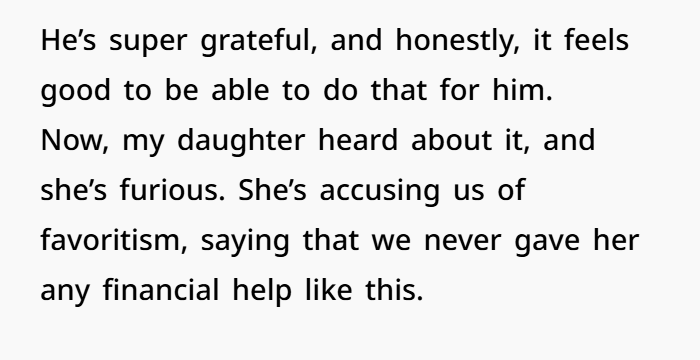


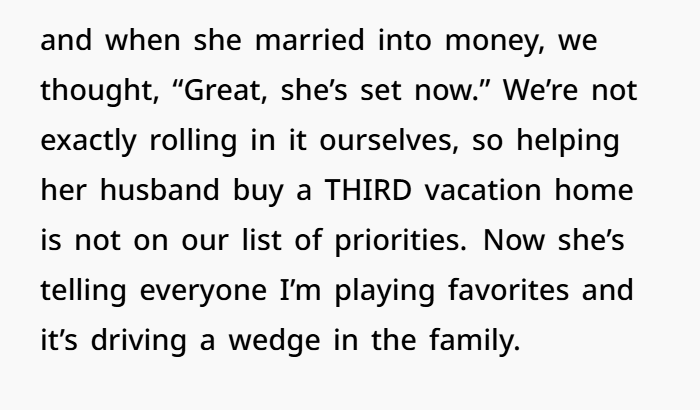
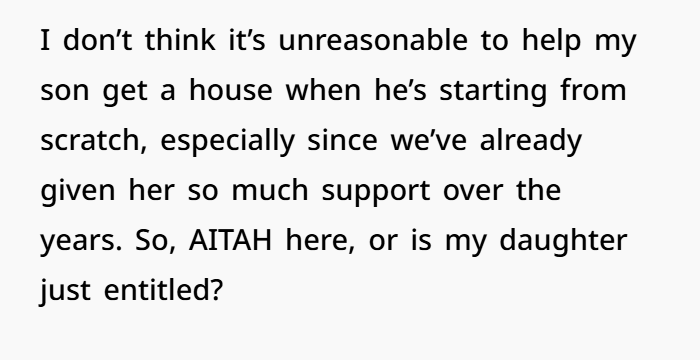
Parental Obligations and Equity in Support
When some children are better off than others, parents are always faced with the difficult task of how much financial assistance to provide to whom. Treating everyone equally sounds great in concept but in practice, equity sometimes requires it to be approached with an individualistic lens—did they even need the support to begin with, and where do they stand in the grand scheme of systemic injustices? Even psychology Today notes that fairness in families is subjective, and dependent on the context since every child has their own individual circumstances and unique gifts to the family dynamics.
The father is doing what is consistent with equity. His son, a participant in the difficult and costly housing market, gets immediate, tangible assistance — a close-to-equalizing step, as it was probably right to do given the well-off financial position of the daughter. That support can take the form of things like downpayment assistance and can have a big affect on the long-term financial independence of young adults, CNBC said, particularly as it can be hard for the middle class to imagine buying a home these days.
Examining Past Support: An Investment in Stability
Another significant factor in the case is something like the parents’ previous investment — financial and emotional — in their daughter during her troubled youth, raising the question of whether assistance provided in the past should go into the equation when future decisions are made. Research published in the Journal of Family Studies found that adult financial distress can re-trigger childhood-associated wounds rooted in perceived unfairness, even if that support was, in fact, warranted and helpful at the time. The father thinks he already gave her a lot, but for the daughter that does not matter, she measures love and her right to be treated the same—which are both pretty fundamental rights—as direct financial equality.
The Psychological Impact of Favoritism Accusations
Even the appearance of favoritism, as unfounded as it may be, can break up family ties. In fact, according to research conducted by the American Psychological Association, favoritism is often perceived and such perceptions tend to be associated with feelings of entitlement or insecurity but they are not associated with actual dimensions of favoritism. Here the daughter may not need money at all but is nevertheless privileged, and her privilege may blind her to an emotional need for validation, forcing her to become defensive even though her financial situation may be comparatively stable.
Financial Assistance in the Context of Wealth Disparities
Reaching out to one but not to another is especially sensitive when someone is rich and others are not. Even covering the minimum cost of living can be a financial burden. Her brother lives in humble circumstances, while the apple of her eye struts about in the style that her wealthy spouse can provide. That being said, this does not disprove her emotional assertion that it is not fair. Drew Cloud, writing for Kiplinger, advised that clear family financial policies help avoid confusion about how things work. Clearly outlining expectations from the beginning can alleviate early deficits that will lead to resentment later.
Most readers were on the dad’s side. They thought he shouldn’t feel guilty about supporting his son. Here are their thoughts
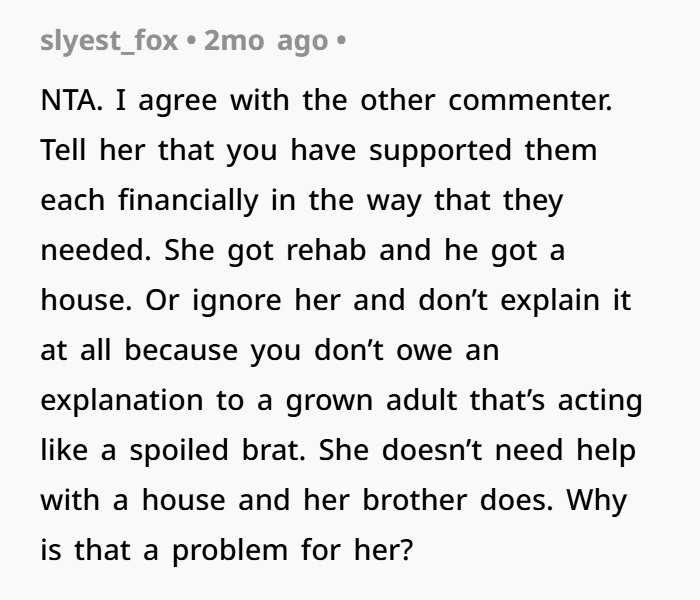
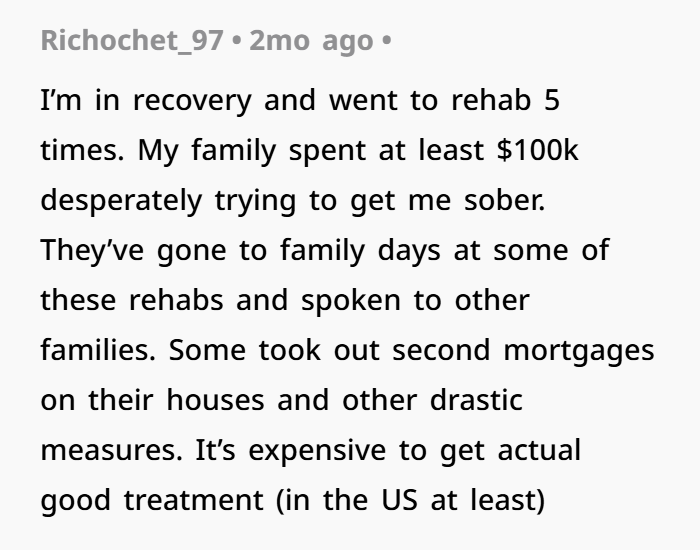

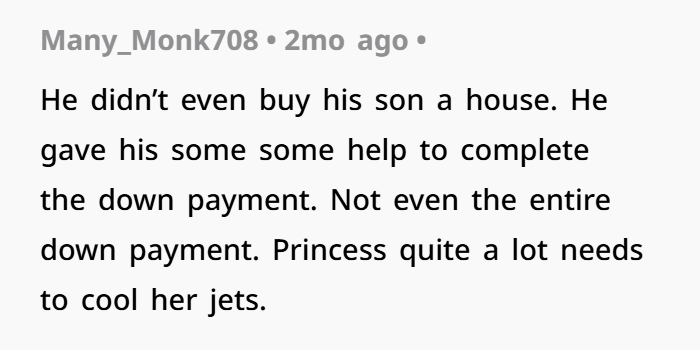
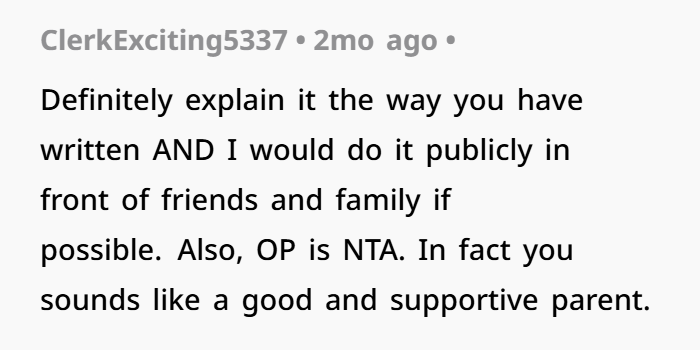

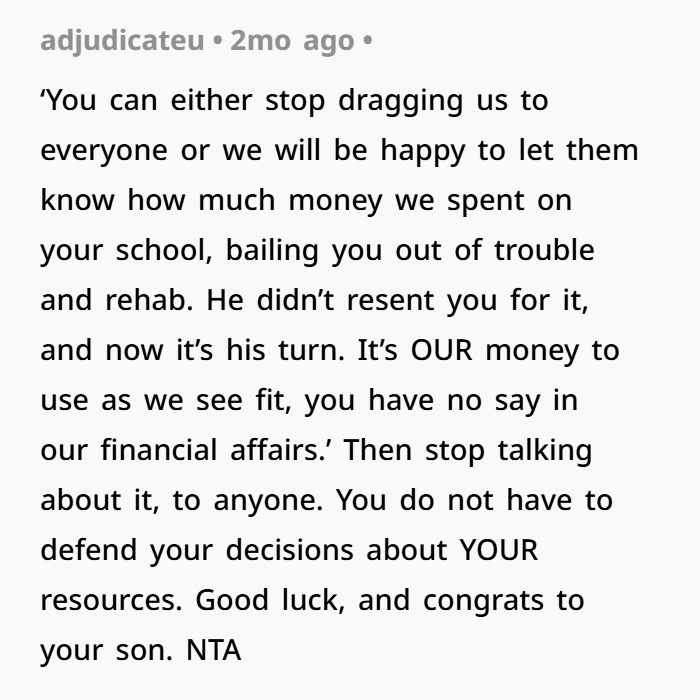
The complexities parents face when one sibling is far better off than the others, and the question of how much financial assistance to give, are captured in this story. Perhaps an open discussion is what it would take to ease these frictions. In such cases, the experts do recommend having a family meeting to clarify the intent behind gifts and decisions made in the past. If the parents acknowledge the emotional hurt without being judgmental but maintain their “honest broker” approach to fairness, whom knows the family may be eventually sew up the breach forged and carry on in harmony.

